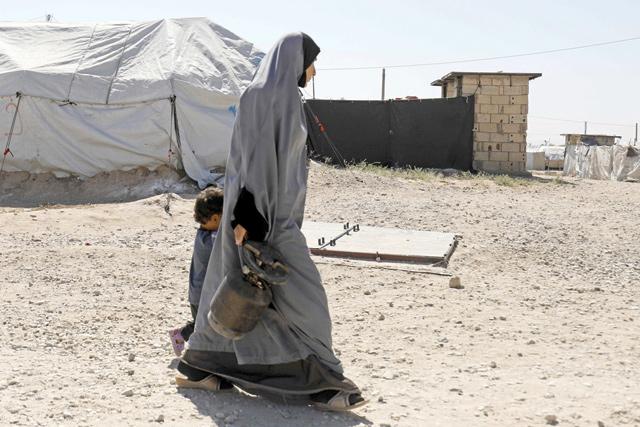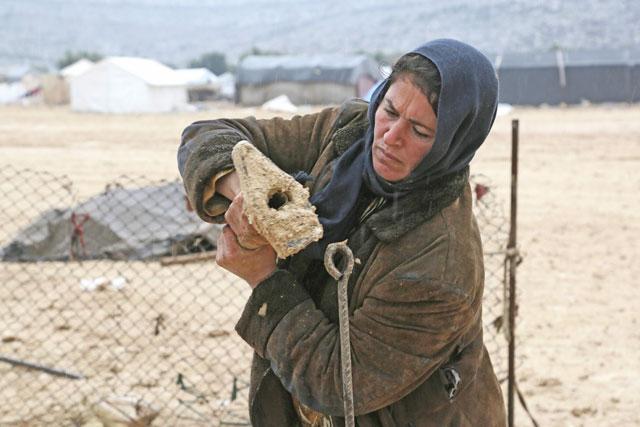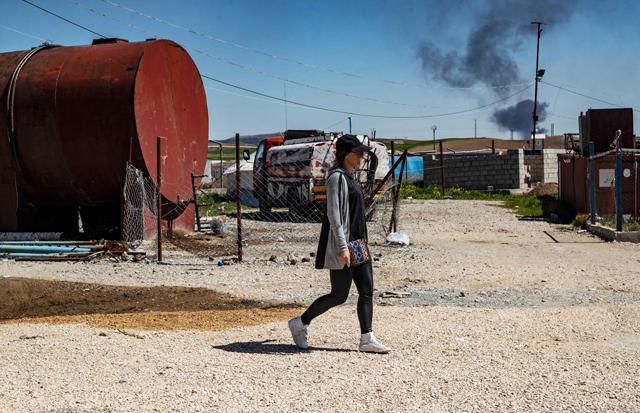You are here
France seeks to bring home extremists’ kids from Syria
By AFP - Oct 25,2018 - Last updated at Oct 25,2018

A woman walks with a child at a camp for Daesh group-affiliated people in the northern Syrian village of Malikiya near the border with Turkey on September 29 (AFP photo)
PARIS — France is seeking to repatriate some of the 150 children of French extremists identified as being in Syria, as Western nations grapple with how to handle citizens who left to join extremists.
A French official, speaking on condition of anonymity, said Paris would repatriate the children "as much as is possible, on the condition that the mother agrees".
"We're starting to look at how this might work," the source added.
French authorities only have a precise location for some of the children, making these the only viable cases for potential repatriation, the source said, declining to give figures.
The cases of the 150 youngsters, some of whom are being held in camps in Kurdish-held northern Syria after the Daesh group was driven from the area, were flagged up by authorities there or by their families in France.
Most are under six years old and were born in Syria.
The mothers of any repatriated children would be left in Syria, the source said.
Like other Western nations reluctant to bring extremists back onto their soil, France has so far ruled out repatriating men who left to fight alongside Daesh, or women who left to marry them.
“Those who committed crimes in Iraq and Syria must be brought to justice in Iraq and Syria,” the foreign ministry said.
“Minors are the exception, and their situation will be examined on a case by case basis. We have a duty to protect children’s interests.”
Yet bringing the children to France will be highly complicated, not least because Kurdish-held Syria is not a recognised state, and Paris has cut off diplomatic ties with Damascus.
Inhumane choice?
The decision to leave French adults in the war zone has infuriated lawyers representing their families at home in France, who say their clients are being held in illegal detention in unsanitary conditions.
“This is scandalous and hypocritical on the part of the French government,” said Bruno Vinay, lawyer for the best-known French woman in Kurdish custody, Emilie Konig.
“France is leaving these women alone faced with the inhumane choice of separating from their children,” Vinay said.
“Given that this is all they have left, it is possible that only a minority will accept to separate from them.”
In neighbouring Iraq, only three French extremist families have been flagged to authorities.
One of the mothers, Melina Boughedir, has agreed for her three children to be taken to France after Iraqi authorities sentenced her to life in jail for being a Daesh member.
Of some 680 French extremists who travelled to Iraq or Syria to fight, more than 300 are believed dead while a small number have travelled to other countries, including Afghanistan and in North Africa.
Kurdish forces say they have more than 900 foreign Daesh fighters in custody coming from 44 countries, prompting a legal and ethical headache for the governments of their home nations.
Kurdish authorities have asked governments to repatriate their nationals, but with a few exceptions such as Russia, Indonesia and Sudan, most have proved highly reluctant.
Related Articles
PARIS — Female French extremists arrested in Kurdish-held parts of Syria should face justice there so long as they can be guaranteed a fair
PARIS — France repatriated 35 children and 16 mothers from camps in Syria holding family members of suspected Daesh terrorists on Tuesday in
PARIS — Twelve orphaned children of French militants were flown home on Monday from camps in Syria, along with two Dutch orphans














